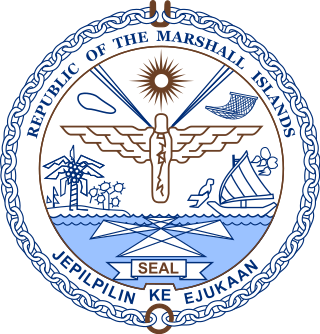Top Qs
Timeline
Chat
Perspective
Elections in the Marshall Islands
From Wikipedia, the free encyclopedia
Remove ads
Marshall Islands elects on the national level a head of state – the president – and a legislature. The president is elected for a four-year term by the parliament. The Legislature (Nitijela) has 33 members, elected for a four-year term in single-seat and five multi-seat constituencies either through first past the post or plurality block voting. The legislature was last elected in 2023 without the participation of parties, though part of the members could be members of the United Democratic Party. The Marshall Islands is a state in which political parties have not been active.
There have been a number of local and national elections since the Republic of the Marshall Islands was founded. The United Democratic Party, running on a reform platform, won the 1999 parliamentary election, taking control of the presidency and cabinet. The new government has publicly confirmed its commitment to an independent judiciary.
Remove ads
Political parties
Traditionally there have been no formally organized political parties; what has existed more closely resembles factions or interest groups because they do not have party headquarters, formal platforms, or party structures; the following two "groupings" have competed in legislative balloting in recent years - Kabua Party (Imata Kabua) and the United Democratic Party (UDP) (Litokwa Tomeing).
Remove ads
Latest election
The most recent Marshallese general election took place in November 2023, resulting in a high turnover of legislators as well as a record number (4) of female politicians elected to the legislature.[1][2]
See also
References
External links
Wikiwand - on
Seamless Wikipedia browsing. On steroids.
Remove ads
